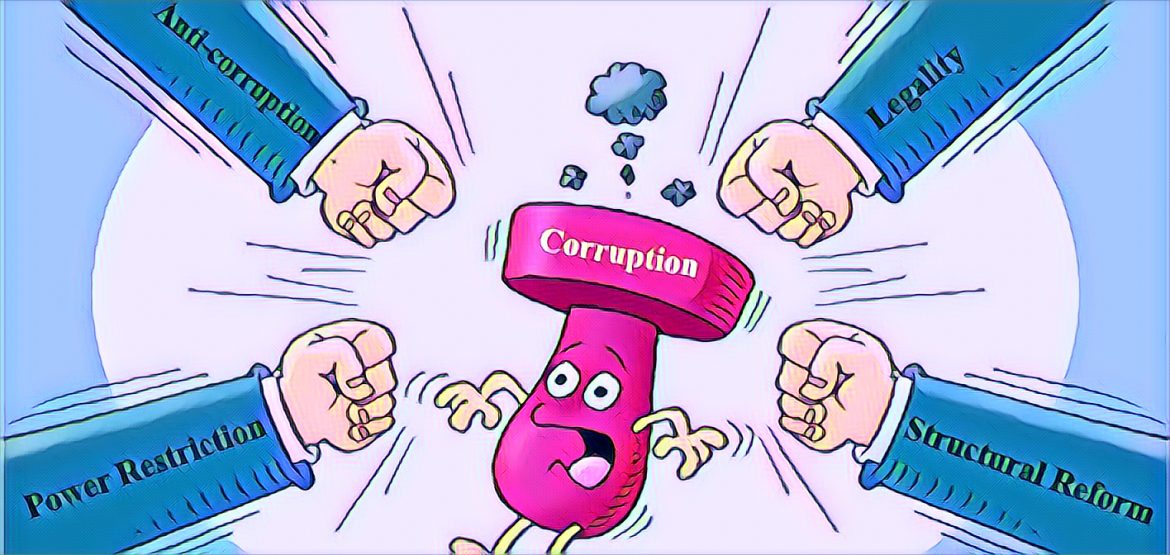President Nana Addo Dankwa Akufo-Addo yesterday initiated a significant programme to evaluate Ghana’s National Anti-Corruption Action Plan (NACAP), marking a continued commitment to combating corruption in both public and private sectors.
According to a report by the Daily Graphic, the original NACAP, a strategic plan launched a decade ago, was developed as a comprehensive policy document aimed at fighting corruption in Ghana. Its objectives include building public capacity to denounce and combat corruption, making it a high-risk and low-gain activity. It also sought to institutionalise efficiency, accountability, and transparency across various sectors, engage the media and civil society in anti-corruption efforts, and ensure effective investigations and prosecutions of corrupt activities.
The first NACAP report is scheduled to be ready by June 2024. However, the ongoing evaluation will inform the development of NACAP Two, set to span from 2025 to 2034.
The launch event, held at the Jubilee House, saw the participation of heads of key anti-corruption institutions, including the Attorney-General and Minister of Justice, the Special Prosecutor, and representatives from the Commission on Human Rights and Administrative Justice and the Economic and Organised Crime Office.
In his address, President Akufo-Addo emphasised the need to assess NACAP’s impact on reducing corruption in Ghana and to adjust policies and institutional arrangements based on the evaluation outcomes. He highlighted the importance of this evaluation in shaping the future direction of NACAP Two.
A diverse team of evaluators, including experts in political science, economics, communication, and gender, has been assembled for this task. The Ghana Statistical Service leads the national evaluators, with support from international evaluators from the United Nations Office on Drugs and Crime, ensuring alignment with international best practices and credibility.
The President stressed that fighting corruption is a collective responsibility, urging stakeholders to participate actively in the evaluation of NACAP and the development of NACAP Two. He called for openness, honest responses, and cooperation to ensure a successful evaluation, viewing it as a beneficial learning tool rather than a scrutiny exercise.
President Akufo-Addo also noted that NACAP had been a key strategy in mobilising stakeholder efforts to prevent and fight corruption since its implementation began in 2015. He expressed satisfaction with the significant progress Ghana has made in its anti-corruption efforts since then.
Deputy Commissioner of CHRAJ, Richard Quayson, outlined that the NACAP Plan included 135 broad activities across various stakeholders, aimed at achieving four strategic objectives. The government formed the NACAP High-Level Implementation Committee (HiLIC) to ensure the plan’s effective implementation and to leverage collective wisdom and efforts under the banner “Ghana United Against Corruption”.
The evaluation of NACAP signifies Ghana’s commitment to strengthening transparency, accountability, and integrity, reinforcing the nation’s stance against corruption.




